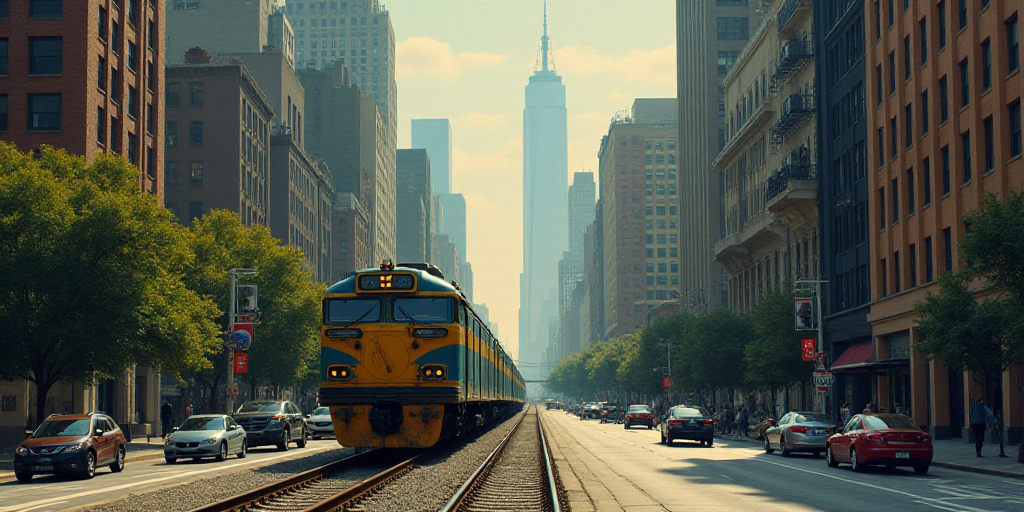Tim Mulligan’s Struggle with Noise Pollution
Tim Mulligan, a 43-year-old ex-marine suffering from PTSD, moved to the heart of Manhattan to avoid the deafening New York City subway system. Despite using high-volume headphones, he still struggles to hear anything during his commute.
To cope with the constant noise, Mulligan has taken several measures in his home near Times Square. He covers his bedroom window with acoustic foam and double curtains, and uses earplugs for sleep. In public, he wears noise-canceling headphones and opts for bicycles or buses instead of the subway.
The Noise Problem in New York City
New York City, home to 8.5 million residents, is a bustling and stressful metropolis due to noise from the subway, traffic, loud music in restaurants and bars, emergency vehicle sirens, construction, street repairs, and honking cars.
In 2024, the city received over 750,000 noise complaints, making it one of the most common issues. By August 14, 2025, nearly half a million complaints had been filed.
Despite having a Noise Code that regulates sound levels from vehicles, constructions, commercial establishments, and recreational activities, along with cameras equipped with sensors to detect and penalize violators, the problem persists.
The Health Impact of Noise Pollution
A study by Professor Richard Neitzel and Columbia University (2010-2012) found that 90% of New Yorkers are at risk of hearing loss due to daily exposure to noise levels above 70 decibels, the healthy average.
Currently, Professor Neitzel at the University of Michigan leads a national study in collaboration with Apple, involving over 200,000 volunteers using smartwatches.
“Approximately 25% of Americans are exposed to noise levels that could potentially harm their hearing over time,” Neitzel summarizes for AFP.
Among young adults aged 18-25, mobile phone headphones are the primary source of noise exposure. However, more people are exposed to high ambient noise levels, particularly in Latino and African American neighborhoods.
Although the percentage of people exposed to noise is similar to those exposed to air pollution, noise “doesn’t receive the same attention” from people or authorities, according to Neitzel.
Consequences of Noise Pollution
Noise pollution is directly linked to sleep problems, cardiovascular accidents, depression, cognitive decline, premature births, low birth weight, and poorer academic performance.
More people are experiencing tinnitus (ringing in the ears)—a permanent, persistent noise—with three out of twenty participants in the study reporting this condition.
The Persistence of Noise Pollution
Sometimes, loud music in restaurants and bars encourages increased consumption, according to Shane Newman, manager of a popular Mexican restaurant in Hudson Yards, Manhattan.
“When you take a drink with the music, it creates a pleasant atmosphere,” Newman says, “and people end up staying longer and consuming more food.”
However, rapid table turnover and increased customer numbers can also contribute to restaurant noise levels, according to some studies.
Audiologist Michele DiStefano, director of the Shelley and Steven Einhorn Audiology Center, emphasizes that noise’s effects on overall well-being and hearing “haven’t been studied enough.”
She warns, especially the younger generation: “The more exposure and higher the intensity, the greater the hearing loss.” Once noise-induced hearing loss occurs, it cannot be reversed; prevention is key.
Key Questions and Answers
- What is the main issue in New York City regarding noise? The city receives over 750,000 noise complaints annually, with nearly half a million reported by August 2025.
- Who is Tim Mulligan and why is his situation relevant? Tim Mulligan, a 43-year-old ex-marine with PTSD, moved to Manhattan’s center to avoid the deafening New York City subway system.
- What are the health impacts of noise pollution? Noise pollution is linked to sleep problems, cardiovascular accidents, depression, cognitive decline, premature births, low birth weight, poorer academic performance, and increased tinnitus cases.
- Why is noise pollution a persistent problem in New York City? Despite having a Noise Code and sensors, noise pollution remains due to lack of attention from both the public and authorities.
- What can be done to address noise pollution? Prevention through education is crucial, as noise-induced hearing loss cannot be reversed once it occurs.






